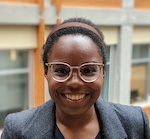Social Commonsense for Social Good

Title: Social Commonsense for Social Good
Abstract: A key dimension of machine reasoning is the ability of neural language models to capture social commonsense by interpreting and understanding the behavior of people in everyday situations. Social commonsense understanding poses a particular challenge to neural language models, due to the complexity and nuances of social interactions. We explore methods for capturing these complexities in two key settings - narrative understanding and social media toxicity classification. We first introduce Paragraph-Level Commonsense Transformers (PARACOMeT), distantly supervised neural commonsense inference models which can reason about the intents and motivations of characters in short stories. These models predict commonsense inferences that are coherent across a full narrative. We then discuss another work exploring understanding of implicit social discourse and commonsense, Social Bias Frames, a formalism which captures subtle biases in social media posts. Finally, we discuss ways in which commonsense knowledge graphs can be used to track the spread of online disinformation.
Bio: Saadia Gabriel is a PhD student in the Paul G. Allen School of Computer Science & Engineering at the University of Washington, where she is advised by Prof. Yejin Choi. Her research revolves around natural language understanding and generation, with a particular focus on machine learning techniques and deep-learning models for understanding social commonsense and logical reasoning in text. She has worked on toxic language detection and coherent text generation.
join the meeting here
The UMass Amherst CICS Rising Stars in Computer Science lecture series highlights the stellar work of young computer scientists about to launch into careers in academia. Join us to hear from rising stars working to solve pressing issues facing the field.